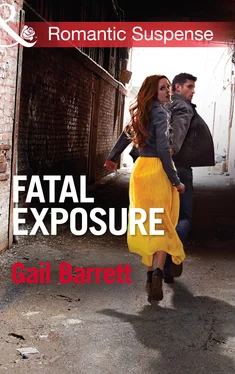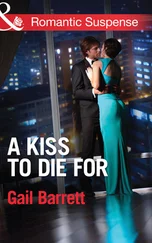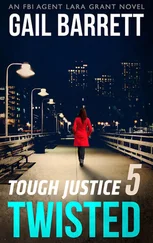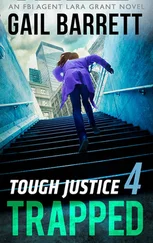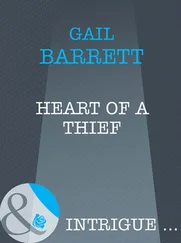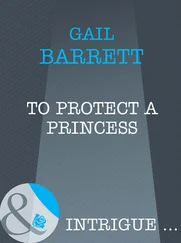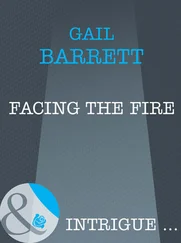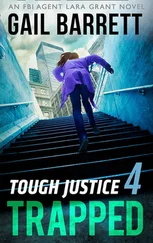A feeling she’d once known well.
Knowing better than to go down that depressing track, she deposited an armload of newspapers and junk mail on the kitchen table, then shrugged off her backpack and coat. She couldn’t change her past. And neither could she rescue the world. She simply tried to reveal the truth, to force the hypocrites in high society to face the hell of these children’s lives—lives they had betrayed and destroyed.
Really not wanting to revisit those old ghosts, she glanced at her kitchen phone, its voice mail indicator light flashing like a squad car at a crime scene, then crossed the kitchen to the pantry and rummaged for a can of soup. The messages would be from Haley, a perpetual worrier, needing to make sure she was safe. Brynn had missed her weekly call-in thanks to the punks who’d stolen her cell phone in New York. She was just glad they hadn’t noticed her camera. The photos she’d taken of the child prostitutes on Rockaway Boulevard were her most poignant work to date.
Impatient to upload the photos to her computer and get to work, she dumped the soup into a bowl and stuck it into the microwave to heat. Then she called up her voice mail, set the phone to speaker and started disposing of her junk mail so she could clear a space to eat.
“Brynn, are you there? Pick up the phone,” Haley’s voice called out. Smiling at her friend’s predictability, Brynn tossed several pieces of junk mail into the bin.
“Brynn, it’s important. Call me right away,” her next message said.
“I will,” Brynn promised. “Just give me a minute to eat.”
“Why haven’t you called me back?” Haley demanded in her third call, desperation straining her voice. “Where are you?”
“In New York, fighting off a couple of punks.” Punks she could have evaded in her younger days. Making a mental note to buy another disposable cell phone, she threw another batch of junk mail away.
“For God’s sake, Brynn, why haven’t you called me? Have you seen the newspapers? I need to talk to you right away.”
The papers? Brynn paused, unable to ignore the urgency in Haley’s tone. Had there been something about Haley’s shelter in the newspaper, something that might have exposed her friend’s identity—a danger they all had to avoid?
Worried now, she dumped the rest of the advertisements in the trash, then started flipping through various newspapers, not sure what she was supposed to find. But whatever it was had to be important. Haley wasn’t the type to panic. She dealt with high drama daily in her shelter for runaway, pregnant teens. And if she was worried enough to call...
Her sense of anxiety growing, Brynn riffled quickly through the papers, scanning political columns and crime reports to no avail. Then a front-page photo caught her attention, and everything inside her froze.
It was a photo of her.
The room swayed. She gripped the table for balance, a dull roar battering her ears. Someone had photographed her leaving the art gallery—and splashed it across the front page. But how had they figured out who she was? She hadn’t spoken to a soul. She hadn’t even greeted the clerk. She’d simply strolled through the exhibit, discreetly checking the status of the photos, then left.
Praying she was somehow mistaken, she unfolded the newspaper, but there wasn’t any doubt. The headline screamed “Mystery solved!”
Reeling, she sank into a chair. How could this have happened? She’d been so blasted careful. She’d lived off the grid for years—always on the move, constantly changing her identity with her friends’ help. Even later, when her career had taken off, her agent had stepped in, doing all the promotional work, accepting awards on her behalf, never revealing what she looked like or where she lived. Now a momentary lapse—a quick visit to the gallery to estimate her earnings—had destroyed everything. And all because she’d needed to upgrade the plumbing in Haley’s shelter before she left on her New York trip.
Staggered by the scope of the disaster, she pressed her fingers to her forehead and tried to think. A reporter had connected her to her work. Exactly how he’d done that, she didn’t have a clue. But the media would come out in droves. Her stepfather would hunt her down. So would Tommy’s killer, assuming he was still around.
Panic bubbled inside her. She was in danger. Terrible danger. So were Haley and Nadine.
No, Nadine would be all right. She’d called a few weeks back to let Brynn know she was heading to Peru, journeying to the remote mountain villages to do her charity medical work. No one would find her there.
But Haley... She was in D.C., running her shelter for pregnant teens—an open target for their enemies.
If she wasn’t already dead.
Horrified, Brynn leaped to her feet, knocking over her chair as she lunged across the kitchen and grabbed the phone. Punching in Haley’s number, she prayed that she’d pick up.
The doorbell buzzed.
Her heart slammed to a halt. She snapped her gaze to the door. The microwave dinged, but she didn’t move, didn’t breathe, her attention riveted on the front door.
She’d never met her neighbors. No one knew she lived here except for her agent and two close friends. And the media couldn’t have found her this fast. She’d bought the historic row house under a fictitious name.
The doorbell sounded again.
She silently disconnected the phone. All her senses hyperalert, she tiptoed across the kitchen to the door, careful not to make any noise. She stopped and held her breath, afraid that even the tiniest hitch would give her away. Then she put her eye to the peephole and peeked out.
A man scowled back. She took in his black, slashing brows, the harsh angles of his chiseled face, the dark beard scruff shadowing his jaw. He was tall, in his late thirties with a strong neck roped with tendons, shoulders as thick as planks. His midnight hair was short, his mouth drawn flat. Authority radiated from him in waves.
A siren went off in her head. A cop. After a lifetime spent on the streets, she could detect one from a mile away. And even wearing a leather jacket and jeans, everything about this man screamed police.
Her thoughts whirling wildly, she backed away from the door. He must have seen her come home. He’d probably staked out her house and lain in wait. It was too late to pretend she wasn’t here.
Struggling not to succumb to panic, she fled back into the kitchen, jerked her coat off the chair, and pulled it on. Then she threw her backpack over her shoulder—just as the doorbell sounded again.
“Be right there,” she called out, hoping to buy some time.
Knowing she only had seconds to escape him, she sprinted into her small home office, grabbed her laptop from the desk and shoved it into her bag. Then she knelt at the fake outlet beside the bookcase and pried the cover off. She pulled out her stash of emergency cash and added it to her bag, then took out her semiautomatic handgun and slammed a magazine home. She stuck the weapon into an outside pocket of the backpack and rose.
She spared a glance at the basement but instantly ruled it out. A cop wouldn’t come alone. He probably had a partner watching her backyard—including the tool shed, which hid the cellar door. But she’d prepared for this day, planning for this very emergency. She’d even bought an end-unit row house with this disaster in mind.
Moving faster now, she raced up her stairs to the guest bathroom, which faced the open side. Then she quietly pushed open the window and peered out into the night. The crisp autumn air chilled her face. The rumble of traffic from the D.C. beltway hummed its usual background noise. A car sped down the street, its headlights sweeping over the ancient oak tree growing beside the house and illuminating the edge of her fenced backyard.
Читать дальше
